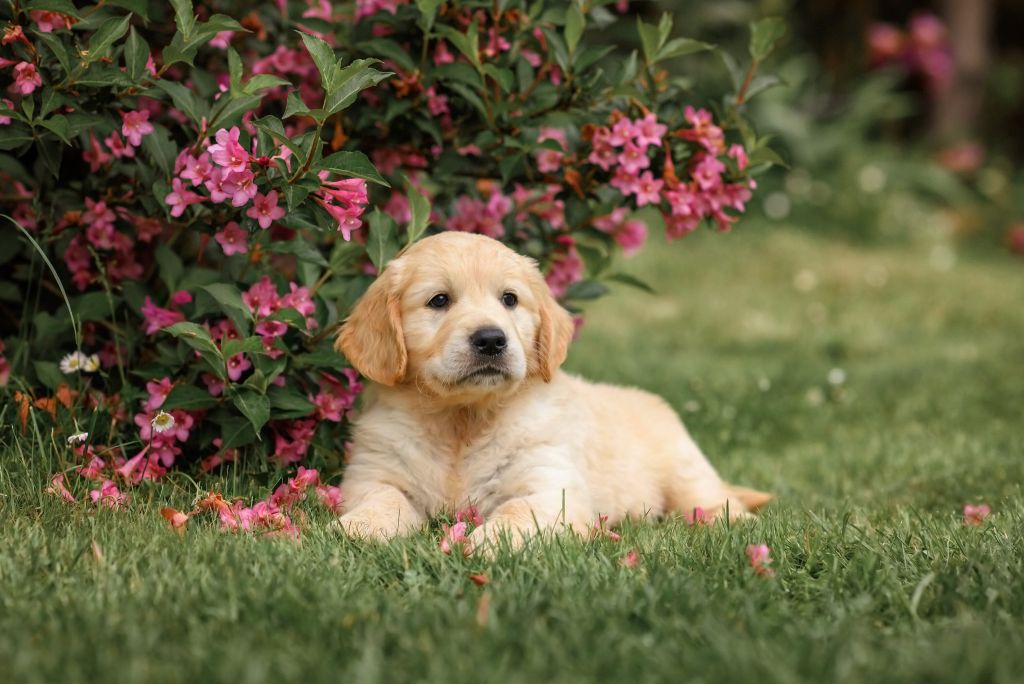5 top tips for puppy-proofing your garden this summer
Our gardens can provide a whole host of fun for your dog — from playing games and having a run about to choosing new toilet spots and sniffing to their heart’s content — but these spaces can be hazardous, too.
To help ensure everyone in your family, including your furry friends, can enjoy the garden, natural dog food brand Harringtons shares some top tips for making your garden the most dog-friendly place possible.
- Avoid toxic plants
Utilising an outdoor space and creating your very own eden of greenery not only benefits your mental health and the environment, it also gives your dog a fun place to explore. However, before you start, you should know which plants are best to avoid as they could be toxic for your pooches.
Some potentially toxic plants and trees for dogs to avoid include:
- Chrysanthemums
- Aconites
- Buttercups
- Daffodils
- Daphnes
- Delphiniums
- Foxgloves
- Hydrangeas
- Oak trees
- Tomato plants
- Wisterias
- Yew trees
That may sound like a long list, but don’t worry — there are plenty of dog friendly plants to choose from, so your garden can still be filled with luscious greens and bright colours!
- Camellias
- Daisies
- Roses
- Sunflowers
- Lavender
Did you know that lavender also has health benefits for our dogs? Diluted lavender oil is sometimes used to combat allergic symptoms in dogs, due to its anti-inflammatory, calming effects.
- Be careful with chemicals
Many popular weed killers and lawn treatments contain harmful chemicals that can leave our four-legged friends with burns on their skin, vomiting, diarrhoea and breathing difficulties. Ingredients to avoid include…
- Glyphosate
- Disulfoton
- Sodium arsenite
- Metaldehyde
- Ammonium sulfamate
- Borax
Whilst making sure to avoid these ingredients, rest assured, there are plenty of pet-friendly products to choose from. It’s not hard to have the best of both worlds — a happy, healthy dog and a garden that looks its best!
3. Stop the digging
If one thing’s for sure, dogs love to dig. It’s in their nature — but it can disrupt the ecosystem you’ve spent time creating in your garden and undo all your green-fingered efforts!
Strong smells can be the answer to deter digging; try dried mustard, dried pepper, bitter orange or coffee grounds, with the latter doubling up as great fertiliser. Smaller spaces could benefit from a design with decking or a patio area, with raised flower beds built in to house your plants, removing the temptation of digging from your pooch — it also saves you time on mowing the lawn!
4. Make sure your garden is secure
For peace of mind when you let your dog out in the garden, make sure it’s safe and secure for them to play in.
Close off any potential escape routes like gaps in the fence or a dodgy side gate. Keep sharp tools and harmful chemicals safely stored away in a locked shed, and make sure your rubbish (including compost bins) are out of reach.
As we all know, dogs love a good sniff around, especially when there’s a chance of finding something tasty — but our rubbish could contain toxic food scraps like onions. There could also be potentially sharp objects, like disposable razors or plastic packaging which could cause painful injuries!
5. Keep your pooch away from snails and slugs
Snails and slugs are notorious garden pests — but they can do more damage than just chomping away at your plants! They can carry a disease called lungworm, which can be spread to your dog if they eat one, leading to a range of potentially dangerous health problems.
Be careful with your choice of slug and snail pellets or baits; metaldehyde is a common ingredient which, as we discussed, can be very dangerous to dogs. If you think your dog has consumed a snail or a slug, consult your vet immediately.
Gardens are a great space for your dog to enjoy, whether they’re burning off some energy playing games with the family, or relaxing in the shade on a warm day. Make sure you do your garden checks so you can rest assured they’re safe and secure when they’re out there.



